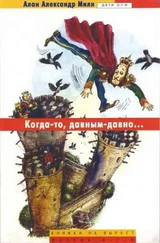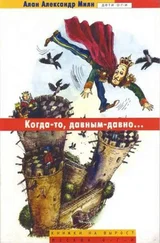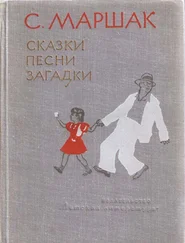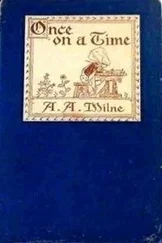"No, no," I said. "Let's go on. The fresh air will do you good."
"Perhaps it will," he said hopefully. "I'm sorry I'm like this, but I've had a cold hanging about for some days, and that on the top of my liver―"
"Quite so," I said.
The climax was reached, at the next hole, when, with several strokes in hand, he topped his approach shot into a bunker. For my sake he tried to look as though he had meant to run it up along the ground, having forgotten about the intervening hazard. It was a brave effort to hide from me the real state of his health, but he soon saw that it was hopeless. He sighed and pressed his hand to his eyes. Then he held his fingers a foot away from him, and looked at them as if he were trying to count them correctly. His state was pitiable, and I felt that at any cost I must save him.
I did. The corner was turned at the fifth, where I took four putts.
"You aren't going to win all the holes," he said grudgingly, as he ran down his putt.
Convalescence set in at the sixth, when I got into an impossible place and picked up.
"Oh, well, I shall give you a game yet," he said. "Two down."
The need for further bulletins ceased at the seventh hole, which he played really well and won easily.
"A–ha, you won't beat me by much ," he said, "in spite of my liver."
"By the way, how is the liver?" I asked.
"Your fresh–air cure is doing it good. Of course, it may come on again, but―" He drove a screamer. "I think I shall be all right," he announced.
"All square," he said cheerily at the ninth. "I fancy I'm going to beat you now. Not bad, you know, considering you were four up. Practically speaking, I gave you a start of four holes."
I decided that it was time to make an effort again, seeing that Thomson's health was now thoroughly re–established. Of the next seven holes I managed to win three and halve two. It is only fair to say, though (as Thomson did several times), that I had an extraordinary amount of good luck, and that he was dogged by ill–fortune throughout. But this, after all, is as nothing so long as one's health is above suspicion. The great thing was that Thomson's liver suffered no relapse; even though, at the seventeenth tee, he was one down and two to play.
And it was on the seventeenth tee that I had to think seriously how I wanted the match to end. Thomson at lunch when he has won is a very different man from Thomson at lunch when he has lost. The more I thought about it, the more I realized that I was in rather a happy position. If I won, I won—which was jolly; if I lost, Thomson won—and we should have a pleasant lunch.
However, as it happened, the match was halved.
"Yes, I was afraid so," said Thomson; "I let you get too long a start. It's absurd to suppose that I can give you four holes up and beat you. It practically amounts to giving you four bisques. Four bisques is about six strokes—I'm not really six strokes better than you."
"What about lunch?" I suggested.
"Good; and you can have your revenge afterwards." He led the way into the pavilion. "Now I wonder," he said, "what I can safely eat. I want to be able to give you some sort of a game this afternoon."
Well, if there is ever a Royal Commission upon the national physique I shall insist on giving evidence. For it seems to me that golf, far from improving the health of the country, is actually undermining it. Thomson, at any rate, since he has taken to the game, has never been quite fit.
"Do you tango?" asked Miss Hopkins, as soon as we were comfortably seated. I know her name was Hopkins, because I had her down on my programme as Popkins, which seemed too good to be true; and, in order to give her a chance of reconsidering it, I had asked her if she was one of the Popkinses of Hampshire. It had then turned out that she was really one of the Hopkinses of Maida Vale.
"No," I said, "I don't." She was only the fifth person who had asked me, but then she was only my fifth partner.
"Oh, you ought to. You must be up–to–date, you know."
"I'm always a bit late with these things," I explained. "The waltz came to England in 1812, but I didn't really master it till 1904."
"I'm afraid if you wait as long as that before you master the tango it will be out."
"That's what I thought. By the time I learnt the tango, the bingo would be in. My idea was to learn the bingo in advance, so as to be ready for it. Think how you'll all envy me in 1917. Think how Society will flock to my Bingo Quick Lunches. I shall be the only man in London who bingoes properly. Of course, by 1918 you'll all be at it."
"Then we must have one together in 1918," smiled Miss Hopkins.
"In 1918," I pointed out coldly, "I shall be learning the pongo."
My next partner had no name that I could discover, but a fund of conversation.
"Do you tango?" she asked me as soon as we were comfortably seated.
"No," I said, "I don't. But," I added, "I once learned the minuet."
"Oh, they're not very much alike, are they?"
"Not a bit. However, luckily that doesn't matter, because I've forgotten all the steps now."
She seemed a little puzzled and decided to change the subject.
"Are you going to learn the tango?" she asked.
"I don't think so. It took me four months to learn the minuet."
"But they're quite different, aren't they?"
"Quite," I agreed.
As she seemed to have exhausted herself for the moment, it was obviously my business to say something. There was only one thing to say.
"Do you tango?" I asked.
"No," she said, "I don't."
"Are you going to learn?"
"Oh, yes!"
"Ah!" I said; and five minutes later we parted for ever.
The next dance really was a tango, and I saw to my horror that I had a name down for it. With some difficulty I found the owner of it, and prepared to explain to her that unfortunately I couldn't dance the tango, but that for profound conversation about it I was undoubtedly the man. Luckily she explained first.
"I'm afraid I can't do this," she apologised. "I'm so sorry."
"Not at all," I said magnanimously. "We'll sit it out."
We found a comfortable seat.
"Do you tango?" she asked.
I was tired of saying "No."
"Yes," I said.
"Are you sure you wouldn't like to find somebody else to do it with?"
"Quite, thanks. The fact is I do it rather differently from the way they're doing it here to–night. You see, I actually learnt it in the Argentine."
She was very much interested to hear this.
"Really? Are you out there much? I've got an uncle living there now. I wonder if―"
"When I say I learnt it in the Argentine," I explained, "I mean that I was actually taught it in St. John's Wood, but that my dancing mistress came from―"
"In St. John's Wood?" she said eagerly. "But how funny! My sister is learning there. I wonder if―"
She was a very difficult person to talk to. Her relations seemed to spread themselves all over the place.
"Perhaps that is hardly doing justice to the situation," I explained again. "It would be more accurate to put it like this. When I decided—by the way, does your family frequent Paris? No? Good. Well, when I decided to learn the tango, the fact that my friends the Hopkinses of St. John's Wood, or rather Maida Vale, had already learnt it in Paris naturally led me to― I say, what about an ice? It's getting awfully hot in here."
"Oh, I don't think―"
"I'll go and get them," I said hastily; and I went and took a long time getting them, and, as it turned out that she didn't want hers after all, a longer time eating them. When I was ready for conversation again the next dance was beginning. With a bow I relinquished her to another.
Читать дальше












